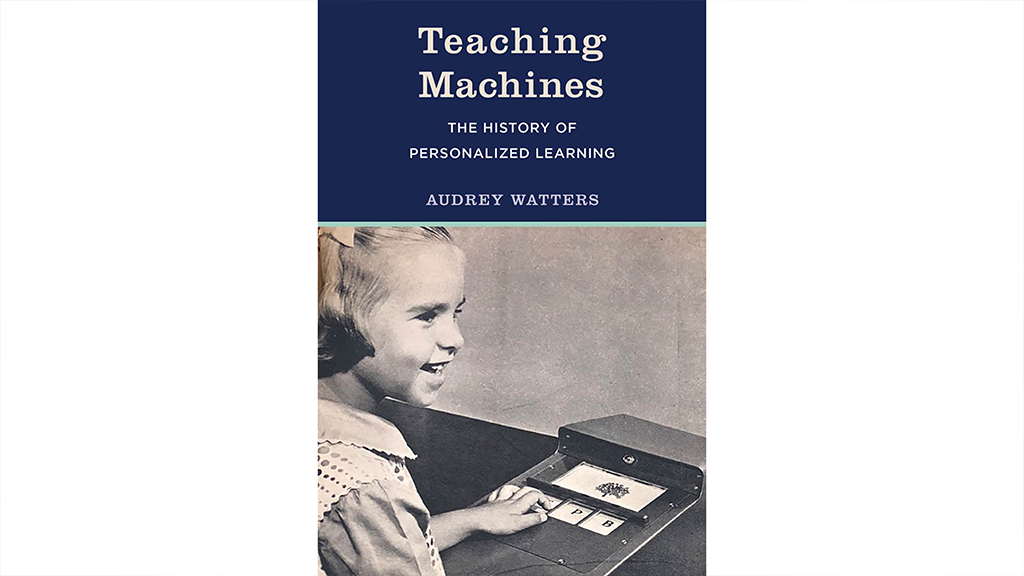
PHOTO COURTESY OF THE MIT PRESS
Audrey Watters begins Teaching Machines: The History of Personalized Learning (The MIT Press, 2021) by describing Burrhus Frederic Skinner, commonly known as B.F. Skinner, a psychologist who believed in classical conditioning, a form of unconscious learning popularized by Ivan Pavlov between the late 1800s and the mid-1900s. Skinner thought he could replicate this concept using a similar method testing pigeons to establish positive reinforcement. Watters is explicating the reading that Skinner seemingly forced himself to believe that his methodology was working. He thought this was an effective way to help teachers who were “failing their students.”
Watters does an excellent job of breaking down the distinction between Pavlov and Skinner, and suggests that Skinner has a competition with himself. He piggybacks off Pavlov’s work and tries to make it relevant to his own. Furthermore, it is difficult to conceptualize a failing school. What constitutes a failing school? Why is the school failing? Watters insinuates that Skinner’s machine will fix the failing school because “teachers were failing to teach their pupils academically and morally.” Again, what teachers are being described, and what are the circumstances behind teachers not teaching their students that contribute to a failing school?
As an educator in a Title 1 school, it is difficult for me to understand what failing means in this context. Schools, especially those that serve underserved communities, are disadvantaged because of a lack of training for teachers and learning materials to promote student growth. The message being conveyed can be seen as controversial because of the wording of a failing school. Some readers may view this as insensitive to the needs of students and teachers.
Watters should convey the importance of having sustainable and equitable schooling for minoritized populations. The author’s position is to note the changes that Skinner tried to implement; however, Skinner’s response in correcting failing schools was not culturally responsive. Students need to have representation and curriculums that are relatable to the African American experience and heritage. To deny the cultural and historical narratives of African Americans is to deny their existence.
Aaron Nance (anance26@uncc.edu) is a doctoral candidate at The University of North Carolina at Charlotte.

Share this content